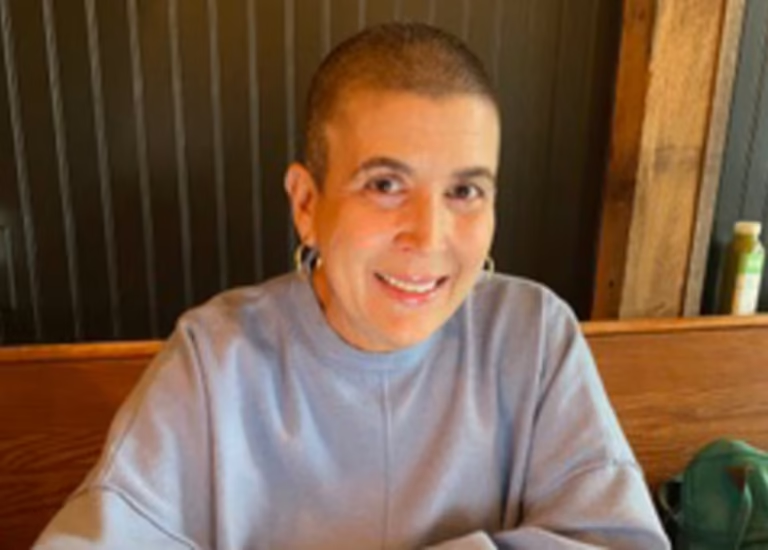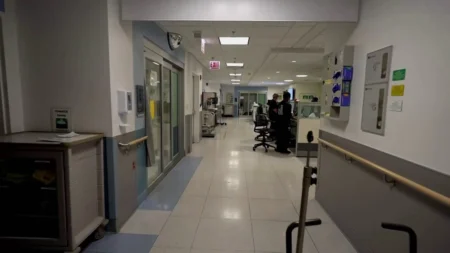UnitedHealthcare and Memorial Sloan Kettering Cancer Center (MSK) have reached a multi-year agreement that will allow about 19,000 patients to continue receiving in-network care. The decision follows a tense contract dispute that left many individuals uncertain about their cancer treatment options.
The agreement, announced Tuesday morning, means that UnitedHealthcare and Oxford health plan customers will not lose access to MSK’s services. This resolution comes after negotiations missed a June 30 deadline, creating panic among patients in New York, New Jersey, and surrounding areas.
One of those patients was Marla Puccetti, 53, from Narrowsburg, New York. She co-owns a restaurant and has been receiving treatment at MSK. On Monday, she spent the entire day trying to reach someone from either the hospital or her insurer.
“I’ve been on hold all day long, basically,” she said. Her insurance plan doesn’t cover out-of-network care, so continuing treatment outside MSK would have meant paying everything herself. That was not financially possible.
Puccetti said she couldn’t imagine switching hospitals. “It’s terrifying. I don’t want to go anywhere else,” she explained. “All of my doctors and surgeons are there. I feel like they saved my life.”
The conflict centered on rising care costs. UnitedHealthcare claimed that MSK requested a 30% payment increase for its facilities and doctors and a 36% increase for its cancer center. The insurer argued that these hikes would add $405 million in expenses over the next two years, which could lead to higher costs for patients.
However, MSK stated that the increases were needed to cover rising operational costs while still delivering high-quality care. Dr. Cardinale Smith, chief medical officer at MSK, pushed back on UnitedHealthcare’s claims. She said MSK actually provides care at 4% to 16% lower costs compared to other hospitals offering similar services.
“Our patients are getting better outcomes for total lower cost of care,” Smith said.
While neither party shared the details of the new agreement, both expressed relief that a solution was reached. Junior Harewood, UnitedHealthcare’s New York CEO, acknowledged the stress the situation caused. “We understand how difficult and deeply personal this negotiation has been for people and their families,” he said. “We are pleased to renew our relationship and provide continued access to MSK for the people who rely on them for quality cancer care.”
MSK’s locations in New York City, New York State, and New Jersey serve thousands of cancer patients from across the region. For many, finding an alternative treatment center would have meant starting over with new doctors and unfamiliar facilities.
Dr. Smith also emphasized that contract negotiations like this one are happening more often in the current healthcare environment. “There is a deeper tension in our health care system,” she said, “where financial priorities are often put ahead of what’s best for patients.”
For Puccetti, the timing of the dispute added extra pressure. She was diagnosed with breast and cervical cancer in 2021, just weeks apart. After a mastectomy and a hysterectomy, her breast cancer went into remission, but her cervical cancer returned multiple times. She has undergone 60 rounds of radiation and 100 chemotherapy sessions. Her hair has fallen out three times.
Currently, she is on an immunotherapy drug that helps her body fight cancer. She travels two hours to MSK weekly for monitoring. She recently received a letter from UnitedHealthcare warning that MSK might be out of network starting July 1. That notice increased her worry.
“It all came as a shock that this was actually happening,” she said.
Until the deal was finalized, thousands like Puccetti were left wondering how they would pay for continued care. Some began looking at other health plans or assistance programs.
Even though Puccetti pays $3,200 per month for her UnitedHealthcare plan, she still faces high out-of-pocket costs. She has applied for financial aid from MSK but hasn’t heard back yet. Despite her illness, she continues to work full-time at her restaurant—cooking, bartending, and handling finances.
“Everyone kept saying, ‘don’t panic, they’ll resolve it,’” she said. “I tried not to panic—but how can you not?”
Thanks to the renewed UnitedHealthcare MSK agreement, she and many others can now focus on healing without the added burden of switching care providers.







